
Maria Luisa Attanasio, known by her stage name Carla Del Poggio, was an Italian cinema, theatre, and television actress. A native of Naples, she was the wife of Italian director Alberto Lattuada for 60 years, from 2 April 1945 until his death 3 July 2005. She died at the age of 84 from undisclosed causes.
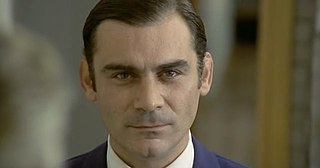
Gian Maria Volonté was an Italian actor and activist. He is best known for his roles in four Spaghetti Western films: Ramón Rojo in Sergio Leone's A Fistful of Dollars (1964), El Indio in Leone's For a Few Dollars More (1965), El Chuncho Munoz in Damiano Damiani's A Bullet for the General (1966) and Professor Brad Fletcher in Sergio Sollima's Face to Face (1967).
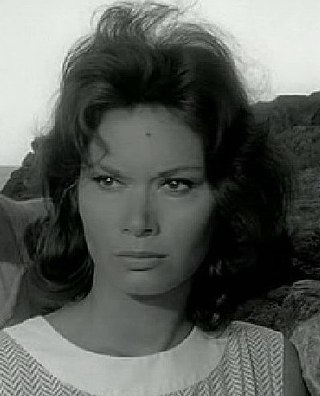
Anna Maria Massetani, known professionally as Lea Massari, is an Italian actress and singer.

Anna of Brooklyn is a 1958 French-Italian comedy film directed by Vittorio De Sica and Carlo Lastricati and starring Gina Lollobrigida, De Sica and Amedeo Nazzari.
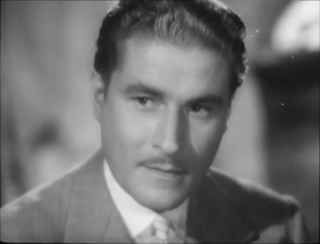
Amedeo Nazzari was an Italian actor. Nazzari was one of the leading figures of Italian classic cinema, often considered a local variant of the Australian–American star Errol Flynn. Although he emerged as a star during the Fascist era, Nazzari's popularity continued well into the post-war years.

Vera Carmi was an Italian film actress. She appeared in more than 50 films between 1940 and 1956.
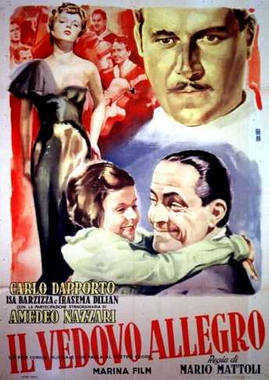
The Merry Widower is a 1950 Italian romance film directed by Mario Mattoli and starring Carlo Dapporto, Isa Barzizza and Amedeo Nazzari. It was shot at the Farnesina Studios in Rome. The film's sets were designed by the art director Piero Filippone.

Un giorno nella vita is a 1946 Italian war film directed by Alessandro Blasetti. It was entered into the 1946 Cannes Film Festival. American title: "A Day In the Life". This film was screened in 2009 at the Film Society of Lincoln Center's retrospective "Life Lessons" Italian Neorealism and the birth of modern cinema.

The Captain's Daughter is a 1947 Italian historical adventure film directed by Mario Camerini and starring Irasema Dilián, Amedeo Nazzari and Vittorio Gassman. It was one of a number of ambitious historical epics made in the wake of the successful 1946 film The Black Eagle. The film's sets were designed by the art director Piero Filippone. It was entered into the 1947 Cannes Film Festival. It is based on the 1836 novel of the same name by Alexander Pushkin, which is set in Russia during the reign of Catherine II. It takes place during the Cossack Rebellion.

Side Street Story is a 1950 Italian comedy film directed by Eduardo De Filippo, who wrote the play upon which the film is based. It was entered into the 1951 Cannes Film Festival.

Policarpo is a 1959 Italian comedy film directed by Mario Soldati. It was entered into the 1959 Cannes Film Festival.
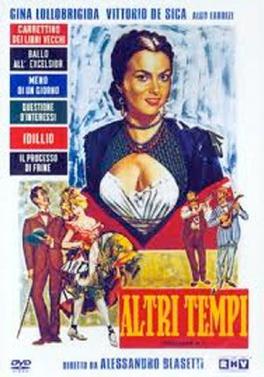
In Olden Days is a 1952 Italian comedy drama anthology film directed by Alessandro Blasetti and featuring an ensemble cast that included Gina Lollobrigida, Amedeo Nazzari, Vittorio De Sica, Elisa Cegani, Barbara Florian, Aldo Fabrizi, Andrea Checchi and Alba Arnova. It was shot at the Cinecittà Studios in Rome. The film's sets were designed by the art directors Dario Cecchi and Veniero Colasanti. It is also known as Times Gone By and Infidelity.
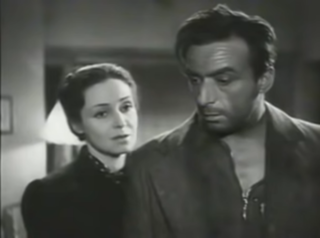
Bengasi is a 1942 Italian war film directed by Augusto Genina and starring Fosco Giachetti, Maria von Tasnady and Amedeo Nazzari. The film was shot at Cinecittà in Rome. The film was a propaganda work, designed to support the Fascist regime of Benito Mussolini. It portrays Allied atrocities in "Bengasi Italiana", such as the murder of a peasant by a group of drunken Australian soldiers.

Cavalry is a 1936 Italian drama film directed by Goffredo Alessandrini and starring Amedeo Nazzari, Elisa Cegani and Luigi Carini. The film marked Nazzari's first role as a lead actor, after making his film debut the previous year. It was a box office success and established some of his personal traits that would be brought out even more clearly in his breakthrough role Luciano Serra, Pilot (1938).
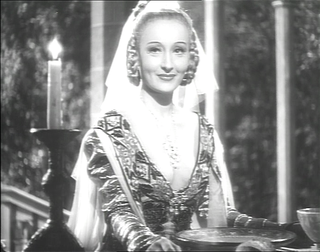
The Jester's Supper is a 1942 Italian historical film directed by Alessandro Blasetti and starring Amedeo Nazzari, Osvaldo Valenti and Clara Calamai. It was based on a play of the same title by Sem Benelli, which had later been turned into an opera by Umberto Giordano. Like the play, the film is set in the 15th century Florence of Lorenzo the Magnificent and portrays a rivalry that leads to a series of increasingly violent practical jokes.

I Always Loved You is a 1953 Italian melodrama film directed by Mario Costa. It is based on a stage play by Enrico Ragusa.

The Sky Burns is a 1958 Italian war drama film written and directed by Giuseppe Masini and starring Amedeo Nazzari and Antonella Lualdi.
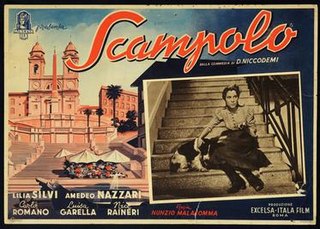
Scampolo is a 1941 Italian comedy film directed by Nunzio Malasomma and starring Lilia Silvi, Amedeo Nazzari and Carlo Romano. The story is based on a play by Dario Niccodemi which has been adapted for the screen a number of times.

The Taming of the Shrew is a 1942 Italian comedy film directed by Ferdinando Maria Poggioli and starring Amedeo Nazzari, Lilia Silvi and Lauro Gazzolo. It is based on William Shakespeare's play The Taming of the Shrew, with the setting updated to modern-day Rome.

One Hundred Thousand Dollars is a 1940 Italian "white-telephones" comedy film directed by Mario Camerini and starring Assia Noris, Amedeo Nazzari and Lauro Gazzolo.




















